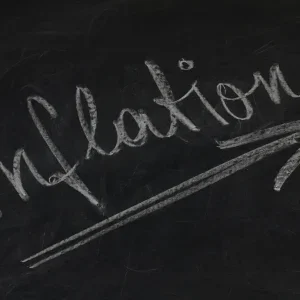
In the digital age, the proliferation of misinformation and disinformation presents significant challenges for various industries, including the hotel sector. These phenomena, often used interchangeably but distinct in their definitions, can impact consumer behaviour, reputation management, and operational efficiency. This article delves into the nature of misinformation and disinformation, their implications for the hotel industry, and strategies to mitigate their effects.
Understanding Misinformation and Disinformation
Misinformation refers to the spread of false or inaccurate information without malicious intent. It is often the result of misunderstandings or errors in communication. In contrast, disinformation is deliberately misleading or biased information, disseminated with the intent to deceive.
In the context of the hotel industry, both forms of information distortion can emerge from various sources, including social media, review platforms, and even traditional media outlets. These can adversely affect customer perceptions and decision-making processes.
The Impact of Misinformation and Disinformation on the Hotel Industry
- Reputation Damage
Reputation is crucial in the hotel industry, where customer trust and loyalty are paramount. False information, whether spread intentionally or accidentally, can tarnish a hotel’s reputation. Negative reviews based on inaccurate claims can deter potential guests and diminish brand credibility.
- Financial Losses
Financial implications are a direct consequence of reputational damage. A decline in bookings due to misinformation or disinformation can lead to significant revenue losses. Additionally, addressing these issues often requires substantial investment in public relations and crisis management.
- Operational Challenges
Misinformation can create operational hurdles. For example, incorrect details about hotel amenities or services can lead to misunderstandings and dissatisfaction among guests. This, in turn, increases the burden on customer service teams to rectify these misconceptions.
Case Studies Highlighting the Consequences
- The Marriott Data Breach
In 2018, Marriott International faced a significant data breach affecting approximately 500 million guests. While the breach was a genuine issue, subsequent misinformation regarding the scale and implications of the breach exacerbated the crisis. False reports suggested broader impacts than were accurate, causing unnecessary panic and a more severe reputational hit.
- Fake Reviews on TripAdvisor
TripAdvisor, a prominent review platform, has faced issues with fake reviews, both positive and negative. In some cases, competitors or disgruntled former employees have posted false negative reviews to harm a hotel’s reputation. Conversely, some establishments have been caught posting fake positive reviews to artificially boost their ratings. Such practices mislead potential customers and undermine the integrity of the review system.
Strategies to Mitigate Misinformation and Disinformation
- Proactive Communication
Hotels must engage in proactive communication strategies to prevent and address misinformation. This involves maintaining an active presence on social media and review platforms, promptly addressing customer concerns, and providing accurate information.
- Investing in Digital Literacy
Educating staff and stakeholders about digital literacy can help in identifying and countering misinformation. Training programmes focused on recognising fake news, understanding the sources of disinformation, and effective communication can be valuable.
- Leveraging Technology
Utilising advanced technologies such as AI-driven monitoring tools can help in early detection of misinformation. These tools can track mentions of the hotel across various platforms, identify potential false information, and alert the management for timely action.
- Strengthening Partnerships with Review Platforms
Collaborating with review platforms like TripAdvisor, Yelp, and Google Reviews to identify and remove fake reviews is essential. Establishing clear communication channels with these platforms can facilitate faster resolution of issues.
Legal and Ethical Considerations
- Regulatory Compliance
Hotels must comply with regulations related to data protection and consumer rights. For instance, the General Data Protection Regulation (GDPR) in the European Union mandates strict guidelines for handling personal data. Non-compliance can lead to severe penalties and reputational damage.
- Ethical Marketing Practices
Adhering to ethical marketing practices is crucial. This includes honest advertising, transparent communication about services and amenities, and refraining from posting fake reviews or misleading information.
The Role of Industry Associations and Government Bodies
- Industry Associations
Industry associations such as the American Hotel & Lodging Association (AHLA) and the British Hospitality Association (BHA) play a pivotal role in addressing misinformation. They can provide guidelines for best practices, conduct training sessions, and act as a collective voice to lobby for stricter regulations against disinformation.
- Government Bodies
Government agencies can enforce laws against deceptive practices and support initiatives aimed at improving digital literacy among consumers and businesses. For example, the UK’s Competition and Markets Authority (CMA) has taken action against fake reviews and misleading endorsements.
The Importance of Building Trust
Building and maintaining trust is fundamental in combating the adverse effects of misinformation and disinformation. Trust is built through transparency, consistency, and integrity in all business practices. Hotels should focus on creating positive guest experiences, encouraging genuine feedback, and fostering open communication channels with their customers.
Conclusion
Misinformation and disinformation are significant challenges in the hotel industry, with far-reaching implications for reputation, financial stability, and operational efficiency. By understanding the nature of these issues and implementing robust strategies to counteract them, hotels can protect their brand integrity and maintain consumer trust. Proactive communication, digital literacy, technological solutions, and adherence to legal and ethical standards are key components in this endeavour. As the industry continues to navigate the digital landscape, vigilance and adaptability will be crucial in mitigating the impacts of misinformation and disinformation.






